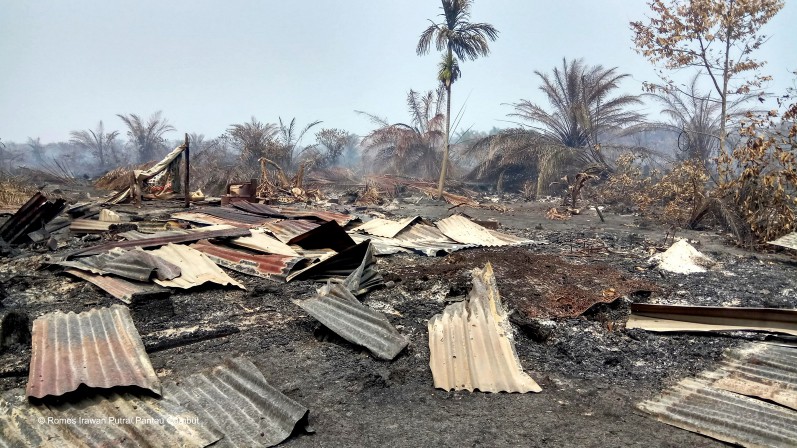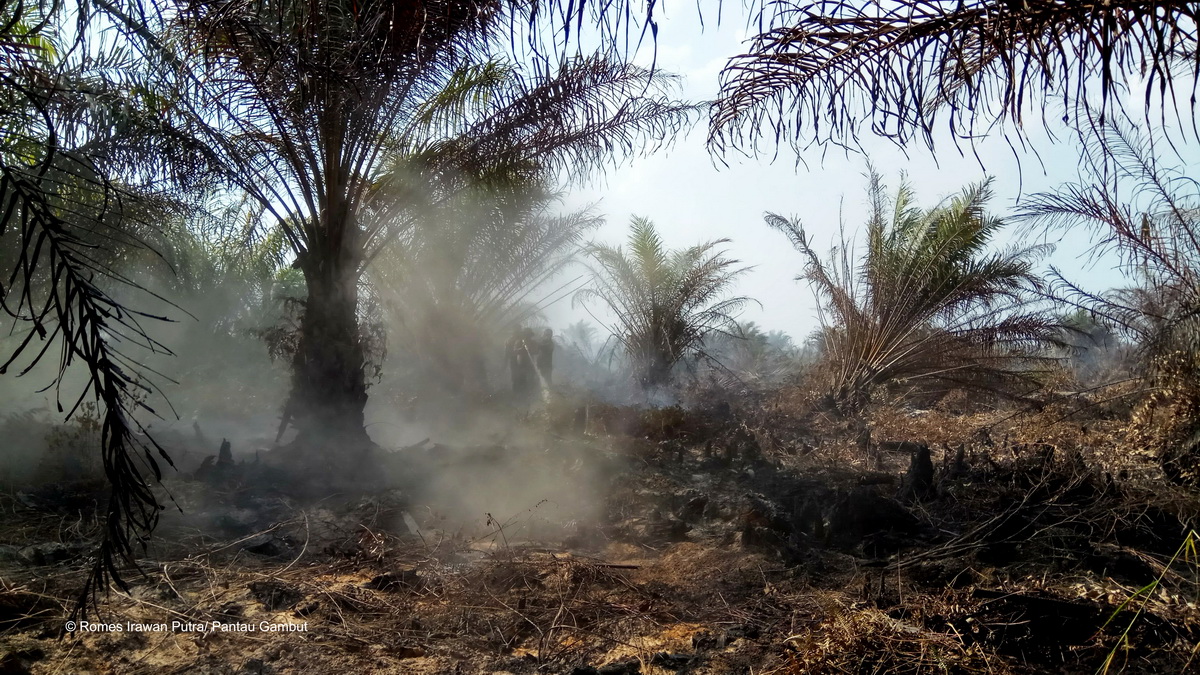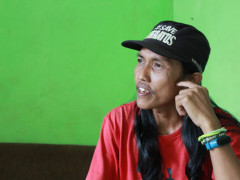Using Local Wisdom as a Key Factor for Peat Swamp Ecosystem Management in South Kalimantan
By Kisworo Dwi CahyonoFires on Kubu Peat and BRG’s Belated Restoration

Fires in the Riau subdistrict of Kubu destroyed over 1,000 hectares of land and burned dozens of houses and other property. The 2017 Peatland Restoration Agency (BRG) program plan promised construction of 10 canal blocks and 50 boreholes in this area, but this has yet to be implemented. As a result, fires continue unabated.
In early August 2018, the Riau village of Tanjung Leban signed an agreement with the Peatland Restoration Agency (BRG) to implement a restoration program in the area. While it was not clear when the plan would be implemented, the peatlands in Tanjung Leban were already burning violently. More than a thousand hectares of peatland were burned, along with dozens of houses and other property.
Wandri, Secretary of Tanjung Leban Village, said that BRG invited village officials and representatives of three farmer groups to Pekanbaru to sign the peatland restoration program plan.
“[There were] three groups: one for canal blocking and two for boreholes. They said that it was likely to be implemented immediately after the hajj (pilgrimage) break,” Wandri said.
The planned peatland restoration program in Tanjung Leban includes 10 canal blocks to be built by one group. Meanwhile, the two other groups will construct 50 boreholes. However, according to Wandri, the locations of the canal blocks and boreholes were already determined by the BRG, making him worry that they may not be appropriate for his village.
“If those points cross over into another village, [this program] is useless. These points are not yet known, because we have not seen the program locations on a map. [Later] we will ask if there are points in other villages, which there shouldn’t be, in our opinion," he explained.
However, Wandri believes that if this program is implemented properly, restoration can effectively prevent peatland fires in the area. His belief is based on the continued functioning of a canal block made by villagers in 2016. When fire broke out in mid-August, the peat beds around the canal block were not burned.
“I think this program [can be] quite effective, because we used to make canal blocks with funding from the village head at that time. It works very well when it comes to retaining water. The peatlands are not burning now. Even so, we ask that they be restored," he continued.
Pantau Gambut Local Network Coordinator in Riau Romes Putra Irawan regrets the slow progress of the BRG restoration program. The construction of 10 canal blocks and 50 boreholes in Tanjung Leban, planned for 2017, still has yet to be implemented as of September 2018. As a result, fires may continue unabated.
“In 2017, the location of [the proposed] boreholes and canal blocks had already been determined and should have been worked on. Unfortunately, it turns out that the work was only done in 2018. If it was implemented as planned, this year's forest fires might not have been so big,” Romes said.
An analysis of satellite data by Pantau Gambut reveals that 60% of detected hotspots during August 17th to 24th were found in peatland restoration priority and moratorium areas. Moreover, the analysis also showed that 25% of hotspots detected were within restoration priority areas but not on moratorium lands. As many as 4% of detected hotspots were on moratorium areas that are not prioritized in peatland restoration. Only the remaining 11% of detected hotspots were neither on peatland restoration priorities nor moratorium areas.
“There were 1,572 hot spots between 17–24 August, most of which were in peatland areas prioritized for restoration. This calls into question the effectiveness of the BRG program so far," Romes said.
Romes also questions the way BRG launched its Peat Care Village program. In 2017, it only included 11 villages, and in 2018, it only included 10 villages.
“What about the other villages vulnerable to fires? This becomes the responsibility of the institutions concerned. They’re not addressing what happens when fires occur in business concessions and what can be done to ensure that corporations carry out the same restoration activities, and if not, when permits should be reevaluated," he added.




